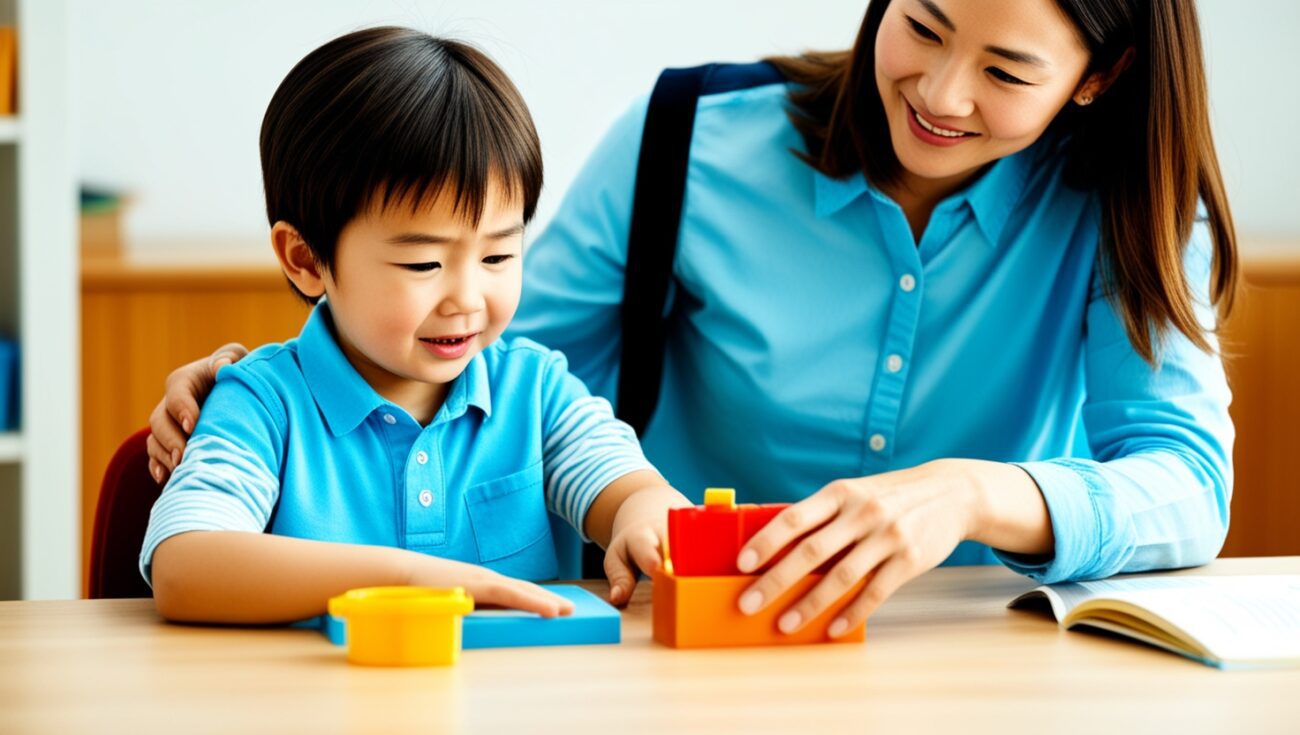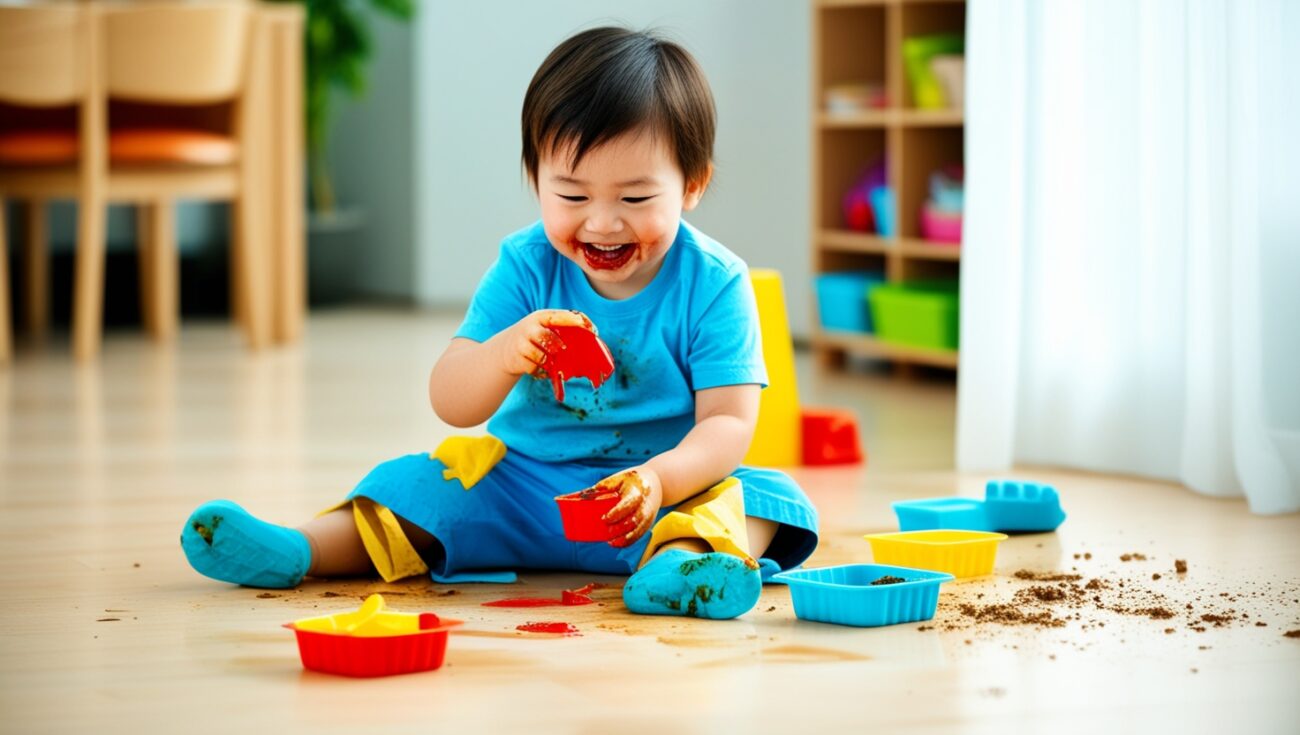نشر بواسطة سندباد
20
أبريل
How to Deal with Shy Kids: A Practical Guide for Parents
Is your child shy and reserved, especially in new social situations? Do they feel anxious or reluctant to interact with others, even when they’re part of a group? If so, you're not alone. Many children experience shyness, and it’s completely normal to feel nervous in unfamiliar situations.
However, with the right guidance and support, shy children can gradually build their confidence and social skills. In this article, we’ll explore effective tips to help your child overcome their shyness, develop social confidence, and feel more comfortable in social situations. Let’s dive into these strategies that can empower your child to be more open and self-assured.
1. Understand and Acknowledge Their Shyness
Before you can help your child move past their shyness, it’s important to recognize that shyness is a natural personality trait. It’s not something to be "fixed," but...
20
أبريل
How to Handle Stubborn Children: Practical Guide for Parents
Dealing with stubborn children can sometimes feel like an endless power struggle. Whether it's refusing to get dressed, resisting homework, or simply saying "no" to everything, stubbornness can test even the most patient parent. However, stubbornness is often a normal part of childhood development, and with the right techniques, it can be managed effectively. Today, we'll explore thoughtful strategies to not only handle stubborn behavior but also nurture a positive, respectful relationship with your child. Let’s dive into it!
Is your child constantly resisting instructions or demands, even when you’ve explained things clearly? Do they seem to challenge authority, dig their heels in, and refuse to compromise? While stubbornness can be a normal part of a child’s development, it can be difficult to navigate as a parent. But with patience and the right strategies, you can...
20
أبريل
Teaching Kids How to Cope with Failure : Essential Parenting Tips
Failure is a natural and inevitable part of life, but for children, it can feel overwhelming and discouraging. Whether they’re struggling with academics, sports, hobbies, or social relationships, how children cope with failure greatly impacts their emotional development and future success. By teaching kids how to handle setbacks constructively, we help them develop resilience, persistence, and a positive attitude toward challenges. In this article, we'll dive deep into practical strategies to guide children through failure, turning difficult moments into powerful opportunities for growth.
1. Normalize Failure and Reframe It
Helping children understand that failure is not only normal but essential to learning is one of the most important foundations for building resilience.
Reframe Failure as a Learning Experience:Children often see failure as a definitive judgment on their abilities. It's crucial to help them shift that perspective. Teach them...
20
أبريل
How to Manage a Controlling Child: Expert Parenting Strategies
Managing a controlling child can feel challenging and emotionally draining. However, understanding why children behave this way and applying the right techniques can help parents guide their kids toward more cooperative, respectful behavior. In this article, you’ll learn step-by-step strategies to manage a controlling child effectively, foster healthy independence, and build emotional resilience.
Is your child always trying to take charge, control situations, or insist on things being done their way? If so, you are not alone. Many children display controlling behaviors as a way to seek security, autonomy, or manage anxiety about uncertain environments.
Recognizing that controlling behavior often comes from a place of fear or need for stability helps parents respond with patience and empathy. In this guide, we’ll walk you through proven methods for managing a controlling child while building their confidence and emotional...
19
أبريل
How to Manage Kids with Attention Difficulties Effectively
Is your child often distracted, struggles to focus, or finds it hard to complete assignments? Attention difficulties are common and can make daily tasks more challenging both at home and school. As a parent, it’s natural to feel frustrated, but the good news is — with the right strategies and support, you can help your child improve their attention skills.
In this guide, we’ll explore effective tips for managing kids with attention challenges, helping them stay engaged, organized, and successful. Understanding the root causes and offering targeted support can make a real, positive difference in your child's life.
Tip 1: Create a Structured Environment
A structured environment gives children a clear sense of order and predictability, which is vital for staying focused.
• Establish Consistent Routines
Children with attention difficulties thrive on consistency. Create a predictable daily schedule where activities...
19
أبريل
How to Teach Kids to Apologize Sincerely
Do you struggle to get your child to say "sorry" when they’ve hurt someone’s feelings or made a mistake?Teaching kids how to apologize is a crucial life skill that helps them understand accountability, empathy, and the importance of repairing relationships.In today’s guide, we’ll explore how you can teach your child the art of a sincere apology, helping them build emotional intelligence and create meaningful connections with others. With the right guidance, your child will learn how to make amends and show kindness after making mistakes.
Tip 1: Explain the Importance of Apologizing
• Empathy and Accountability
Children often don’t naturally recognize the impact of their actions.Teach them that apologizing means understanding when they've hurt someone and caring enough to make it right.Use simple phrases like, "When you said that, it made your friend feel sad."
• Restoring Relationships
Apologies act...
19
أبريل
How to Handle Mischievous Children with Positive Parenting
Is your child constantly getting into trouble, testing boundaries, or acting out in mischievous ways?It can be challenging to manage children who are always pushing limits, but it’s important to remember: mischievous behavior is often a sign of curiosity, energy, or a need for attention.
In this article, we’ll share effective strategies for dealing with mischievous children in a positive and constructive way. By understanding the root causes behind their behavior and responding with patience and consistency, you can guide your child toward better choices and build a stronger, healthier relationship.
1. Understand the Root Cause of Mischievous Behavior
Before reacting with frustration, it’s crucial to understand why your child is behaving mischievously. Often, there’s a deeper reason behind their actions:
Curiosity and Exploration:Children are naturally curious. Mischievous behavior can simply be their way of exploring their surroundings without...
19
أبريل
How to Build Your Child’s Self-Esteem
Self-esteem is crucial for a child's emotional well-being and success in life. It shapes how they view themselves, how they interact with others, and how they face challenges. As a parent, your role is essential in helping your child develop strong, healthy self-worth.In this article, we’ll explore actionable tips to nurture your child’s self-esteem, empowering them to feel confident, valued, and capable. With the right support, your child can grow up with the confidence to pursue their dreams and overcome life’s obstacles.
1. Show Unconditional Love and Acceptance
One of the most important foundations for building your child's self-esteem is demonstrating unconditional love and acceptance.
Unconditional Love:Children need to feel that they are loved for who they are, not just for their achievements. Express your love often, regardless of their successes or failures. Phrases like, "I love you...
18
أبريل
How to Teach Kids Accountability for Their Actions
Teaching kids’ accountability is one of the most important lessons parents can offer. Accountability helps children develop responsibility, empathy, problem-solving skills, and strong character. If your child often avoids taking responsibility, blames others, or struggles to understand the consequences of their actions, don't worry — you're not alone. In this article, we'll explore simple and effective strategies for teaching kids to be more accountable, helping them grow into responsible, confident individuals.
📹 Don't forget to watch the full video on this topic!
https://youtu.be/D_q15eoaKfA
1. Set Clear Expectations and Boundaries
Before children can be held accountable, they must first understand what is expected of them. Setting clear rules and boundaries lays the foundation for responsibility.
Establish Clear Rules: Be specific about expectations, like “Complete your homework before screen time” or “Clean up toys after playing.”
Discuss Consequences: Explain ahead of time what...
18
أبريل
How to Deal with Hyperactive Children: Parenting Tips
Is your child constantly moving, unable to sit still, or struggling to focus? Parenting a hyperactive child can be both challenging and exhausting. However, with the right techniques, you can help your child manage their energy, build focus, and develop healthy self-regulation skills.
In this article, we’ll explore practical strategies for dealing with hyperactive children, based on expert advice and real-world parenting tips. Whether you're wondering how to help a hyperactive child at home, how to manage hyperactivity naturally, or how to calm an overactive child, you’ll find actionable solutions here.
👉 Watch the full video here for detailed insights!
https://youtu.be/-O1Md-uZiE4
1. Understand the Causes of Hyperactivity
Hyperactivity in children can stem from a variety of causes, including developmental stages, temperament, or underlying conditions like ADHD.
Developmental Energy: Young children, especially under the age of five, are naturally energetic. Their hyperactivity...




















